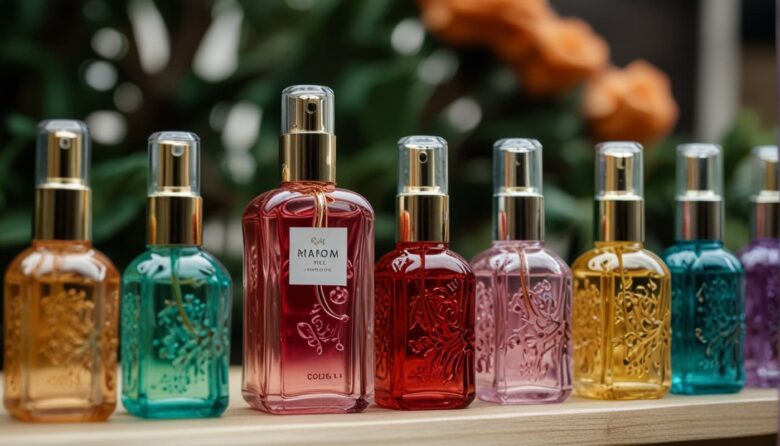Seasonal Variation
The perfume and body mist market in Sri Lanka, like many other sectors, experiences significant fluctuations throughout the year. These variations are influenced by a myriad of factors including climate changes, cultural festivities, and consumer behavior patterns. Understanding these seasonal trends is crucial for manufacturers, retailers, and marketers to optimize their strategies and maximize sales. This article delves into the seasonal variations in perfume and body mist sales in Sri Lanka, exploring the underlying causes and their implications for the market.
Climate Influence on Fragrance Choices
Sri Lanka’s tropical climate plays a pivotal role in shaping consumer preferences for fragrances. The island experiences two main monsoon seasons — the Yala season from May to August and the Maha season from October to January. These periods are characterized by high humidity and rainfall, which can affect the longevity and perception of scents worn by consumers.
During the hot and humid months, there is a noticeable shift towards lighter and fresher fragrances. Citrus-based, floral, and aquatic notes become particularly popular as they provide a feeling of freshness and are less likely to become overpowering. Sales of body mists, which are typically lighter and more refreshing, tend to increase during these months. Conversely, during the cooler months, when the humidity drops and the weather becomes slightly milder, there is a tendency to favor warmer and more robust scents. Spicy, woody, and oriental fragrances see a rise in popularity, reflecting the seasonal change in consumer preference.
Cultural and Festive Influences
Sri Lanka is a country rich in cultural heritage and festivities, which significantly influence consumer spending habits, including the purchase of perfumes and body mists. Major festivals such as Sinhala & Tamil New Year in April, Vesak in May, and the Christmas season in December, are times of celebration and gift-giving, which naturally spur increases in perfume sales.
During these festive seasons, both local and international brands often launch limited-edition fragrances or special promotions to capitalize on the increased consumer spending. Gift sets containing perfumes and body mists are particularly popular as they are considered luxurious and thoughtful gifts. Retailers and online stores also offer discounts and bundle deals, making it more enticing for consumers to purchase during these periods.
Economic Factors and Consumer Sentiment
The economic climate of Sri Lanka also plays a crucial role in the seasonal sales of perfumes and body mists. Factors such as inflation, exchange rates, and general economic stability can influence consumer purchasing power. During times of economic downturn, consumers may become more cautious with their spending, potentially leading to a decline in luxury purchases, including perfumes.
However, even in less favorable economic conditions, smaller and more affordable products such as body mists might see stable or even increased sales as consumers still look for ways to indulge in personal care without the hefty price tag associated with premium perfumes.
Marketing and Consumer Awareness
Marketing efforts significantly impact the seasonal sales of perfumes and body mists. Effective campaigns that align with seasonal themes can engage consumers and drive sales. For instance, marketing campaigns that highlight the refreshing qualities of a fragrance or body mist during the hot season can resonate well with the needs of consumers looking to combat the effects of heat and humidity.
Furthermore, the rise of digital marketing and social media has allowed brands to target consumers more effectively based on their purchasing habits and preferences. Seasonal online campaigns can quickly adapt to changing consumer trends and provide timely promotions that align with current consumer demands.
Future Trends
As the market matures, we can expect more nuanced seasonal products tailored to the specific preferences of different consumer segments. Additionally, sustainability is becoming increasingly important to Sri Lankan consumers. Eco-friendly packaging and sustainably sourced ingredients are likely to play a more significant role









Leave a Reply